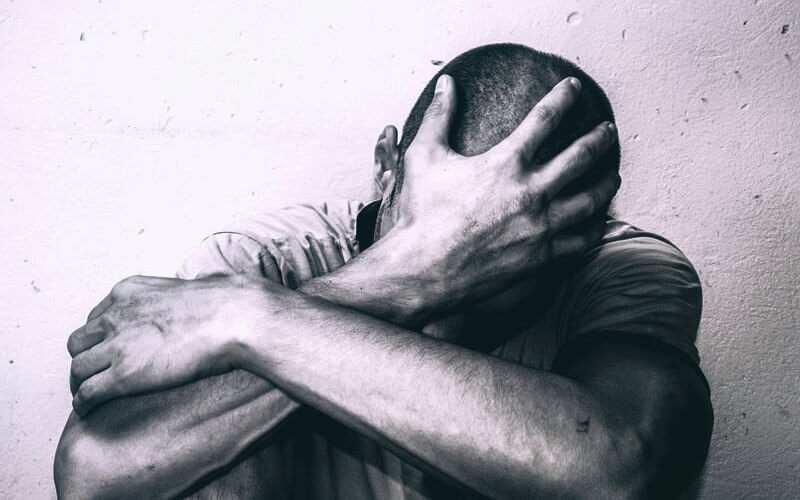Timothy Juma – MBA, MACP, PhD Clinical Psychology Student
is a Clinical Psychologist at Oasis Africa – Center for Transformational Psychology & Trauma, Nairobi, Kenya.
What is Mental Health?
Mental health is a state of thriving mental function performance, resulting in fulfilling relationships with other people, productive activities, and an ability to adapt to change and cope with adversity (Goldman & Grob, 2006). The World Health Organization (WHO), Mental Health Action Plan 2013 to 2020, defines Mental health as a state of well-being, whereby every individual realizes their potential. He or she can cope with the normal stresses of life, work productively and fruitfully, and contribute to her or his community. In other words, there can be no health without mental health (WHO, 2013-2020).
What is Mental Illness?
Globally, mental illness is associated with all identifiable mental disorders. These are linked to mental suffering and poor performance, as displayed by a person’s shifts in thoughts, emotions, and conduct (Goldman & Grob, 2006). Hence, mental illness is a health problem that significantly affects how a person feels, thinks, behaves, and interacts with others. Anyone is vulnerable to mental illness, and according to WHO (2013-2020), the risk is higher among the poor, homeless, the unemployed, victims of violence, migrants and refugees, indigenous populations, children and adolescents, abused women, and the neglected elderly (WHO, 2013-2020). The prevalence rate of mental illness in Kenya for major psychological disorders is 4%, which is comparable with the prevalence rates in western countries (Marangu et al., 2014)
What is Trauma?
Trauma is an emotional or psychological response to a distressing, life threatening or deeply disturbing event, for example, rape, natural disaster, or an accident. Immediately after the event, denial and shock are typical. Longer-term reactions include flashbacks, unpredictable emotions, physical symptoms like headaches or nausea, and even strained relationships. Despite these feelings being normal, some people find challenges going ahead with their journeys in life. Therapists can help such individuals find constructive ways of managing their emotions (American Psychological Association, 2020).
What is the difference between mental health and trauma?
Mental health is a state of well-being. Mental health difficulties affect society as a whole and should be a concern for all of us, rather than only for those who have a mental disorder. On the other hand, trauma is a response to a sudden unexpected life-threatening event. The response is called traumatic stress. If there is no help or there is an inability to cope, we experience Acute Stress Disorder. Later, this may develop to post-traumatic stress disorder (PTSD), leading to complex trauma and for children and developmental trauma disorder.
Can one heal from trauma? From mental illness?
One can heal from trauma through effective interventions like Trauma-Focused Cognitive Behavioral Therapy (TF-CBT). However, delivering TF-CBT to patients with PTSD during the COVID-19 is challenging. An alternative therapy, Cognitive therapy for PTSD (CT-PTSD), can be offered remotely so that patients presenting with PTSD during the COVID-19 pandemic can still benefit from this evidence-based treatment (Wild et al., 2020).
According to Grohol, founder & Editor-in-Chief of Psych central, treating mental illness such as depression, bipolar disorder schizophrenia, or ADHD rarely results in a “cure,” per se. What it does result in is a person feeling better, getting better, and eventually no longer needing treatment (in most cases). “Unlike physical healing like a cured broken arm, even when you are “cured” of your mental illness, nobody will come out and say it” (Grohol, 2018).
Reference
American Psychological Association. (2020). Trauma and Shock. Https://Www.Apa.Org. Retrieved July 23, 2020, from https://www.apa.org/topics/trauma
Goldman, H. H., & Grob, G. N. (2006). Defining ‘Mental Illness’ In Mental Health Policy. Health Affairs, 25(3), 737–749. https://doi.org/10.1377/hlthaff.25.3.737
Grohol, J. M. (2018). How Do You Cure Mental Illness? //psychcentral.com/blog/how-do-you-cure-mental-illness/
Marangu, E., Sands, N., Rolley, J., Ndetei, D., & Mansouri, F. (2014). Mental healthcare in Kenya: Exploring optimal conditions for capacity building. African Journal of Primary Health Care & Family Medicine, 6(1). https://doi.org/10.4102/phcfm.v6i1.682
WHO | Mental Health, (2013-2020). WHO; World Health Organization. Retrieved July 23, 2020, from http://www.who.int/mental_health/en/
Wild, J., Warnock-Parkes, E., Murray, H., Kerr, A., Thew, G., Grey, N., Clark, D. M., & Ehlers, A. (2020). Treating post-traumatic stress disorder remotely with cognitive therapy for PTSD. European Journal of Psychotraumatology, 11(1), 1785818. https://doi.org/10.1080/20008198.2020.1785818

